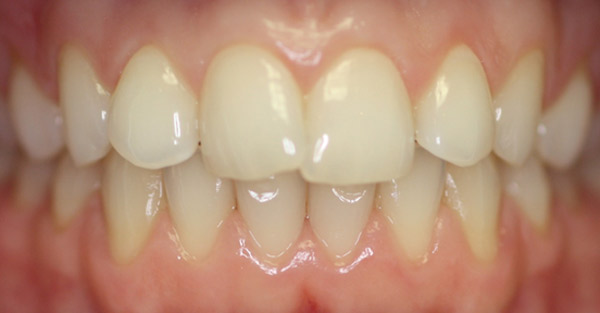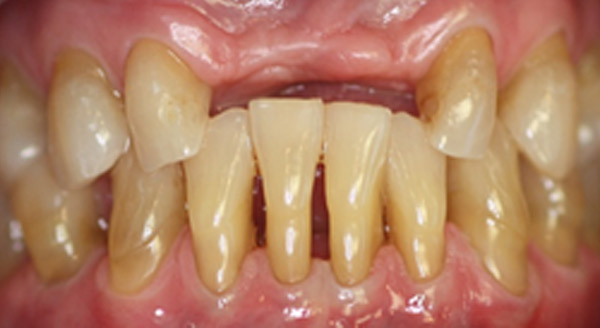Gum – Periodontium
The periodontium is the tooth supporting tissues, it includes inter alia the gum and the alveolar bone (the bone that supports the tooth).
The most common periodontal diseases are gingivitis and periodontitis.
Some tips to prevent periodontal diseases:
1. Oral examination and dental cleaning (at least once a year).
2. Brush your teeth at least twice a day for two minutes each time.
3. Flossing once a day.
4. Using a mouthwash.
5. Healthy eating habits.
6. Avoid smoking; Tobacco contributes greatly to oral diseases.The purpose of oral hygiene is to keep our teeth clean and our gum healthy. Otherwise, bacteria will accumulate around the tooth and produce toxins which cause:
Gingivitis:
Inflammation of the gingiva resulting in bleeding, redness and swelling. This situation is reversible with good oral hygiene, hence the importance of dental cleaning every six months.
Periodontitis:
Destruction of the bone that supports the teeth, leading, over time, to gingival recession, mobility and even tooth loss (in the case of deep periodontitis).
Periodontal problems are accompanied by bad breath, tooth sensitivity, chewing difficulty, and adverse effects in certain medical conditions (heart problems, pregnancy, immune deficiency …).
During oral examination, the dentist evaluates the periodontium and suggests appropriate treatment. Among the treatment of periodontal disease:
1. oral hygiene instructions (brushing technique, dental floss, mouthwash and other accessories).
2. Scaling and polishing of teeth.
3. Repairing certain situations that may cause bacteria’s retention (such as decay or defective restorations)
4. Dental root planning (if necessary).
5. Surgical treatment (if necessary) …
Don’t forget the importance of your oral examination and dental cleaning appointment. The appointment’s frequency is related to your oral health status and your ability to maintain good oral hygiene.
Do You have questions?
Call us at



